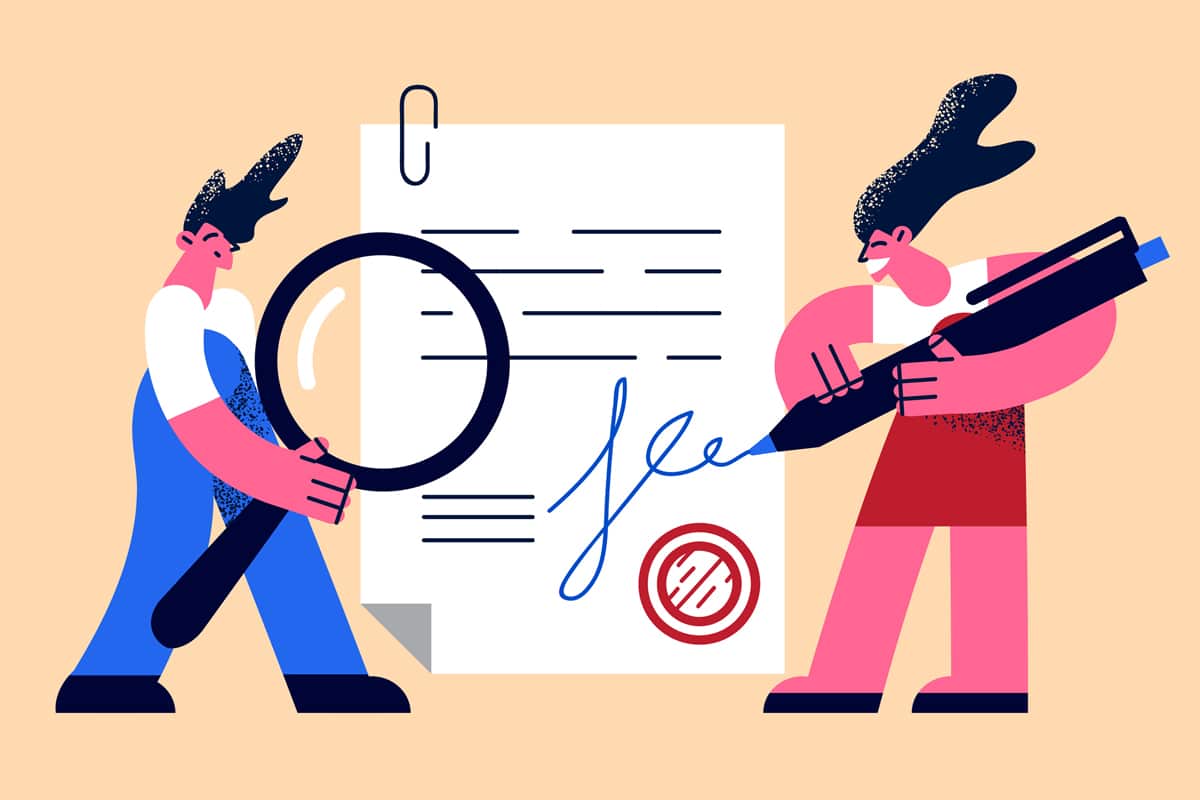RULE 14
Don’t Fear NDAs

Introduction
Non-disclosure agreements (NDAs), frequently found in employment, severance, and settlement contracts, safeguard confidential information within the workplace. However, NDAs must not obstruct an employee’s right to report criminal activity to law enforcement or regulatory agencies. An NDA becomes unlawful when it prevents a current or former employee from testifying about workplace misconduct they have witnessed.
In the late 20th century, the nuclear power industry heavily relied on NDAs. This changed when Joseph Macktal Jr. was dismissed for voicing safety concerns, only to have his whistleblower case dismissed due to a restrictive NDA in his settlement agreement. Macktal subsequently exposed the agreement, inspiring others in the industry to come forward. In response, the SEC enacted regulations prohibiting such restrictive NDAs, and a court determined that this included agreements that “created a chill on speech concerning matters of public interest.”
Practice Tips
The following are key statutes, regulations, and court cases on enforcement of NDAs:
- 18 U.S.C. § 1513(e). (federal obstruction of justice statute)
- Dodd-Frank Act regulations restricting NDAs: 17 C.F.R. § 240.21F-17 (SEC) and 17 C.F.R. § 165.19 (CFTC).
- Defend Trade Secrets Act, 18 U.S.C. § 1833(b) (permitting disclosure of trade secrets under specific conditions).
- Connecticut Light &Power v. Sec. of the U.S. Dept. of Labor, 85 F.3d 89 (2nd Cir. 1996) (restrictive agreement as adverse action)
- U.S. v. Purdue Pharma, 600 F.3d 319 (2010) (releases under False Claims Act).
- In the Matter of KBR, Inc., SEC File No. 3-16466 (Apr. 1, 2015) (decision sanctioning company for restrictive NDA).
- Denson v. Donald J. Trump for President, Inc., 530 F. Supp. 3d 412 (S.D.N.Y. 2021).
Resources
- The case record for the Macktal case is docketed at the U.S. Department of Labor Office of Administrative Law Judges, Case Number 86-ERA-23
- U.S. Secretary of State Order Disapproving Settlement and Remanding Case, 86-ERA-23 (Oct. 13, 1993)
- Macktal v. Brown & Root, 86-ERA-23 (Sec’y July 11, 1995)
- The appeals court case is Macktal v. Secretary of Labor, 923 F.2d 1150 (5th Cir. 1991)
- The hearings on Macktal were published by the U.S. Senate Subcommittee on Nuclear Regulation, Hearings on Secret Settlement Agreements Restricting Testimony at Comanche Peak Nuclear Power Plant, Senate Hearing No. 101-90 (May 4, 1989)
Federal Obstruction of Justice statute:
Dodd-Frank Act rules restricting NDAs:
- 17 C.F.R. § 240.21F-17 (SEC) and 17 C.F.R. § 165.19 (CFTC)
Defend Trade Secrets Act:
- 18 U.S.C. § 1833(b)
- Connecticut Light & Power v. Secretary of Labor, 85 F.3d 89 (2nd Cir. 1996) (upholding cause of action based on illegal hush money settlement)
- Jon Bauer, “Buying Witness Silence: Evidence-Suppressing Settlements and Lawyers’ Ethics,” 87 Oregon Law Review 481, 493 (2008) (listing examples of restrictive settlements that interfered with the public’s ability to learn about serious safety issues)
- Town of Newton v. Rumery, 480 U.S. 386 (1987) (Supreme Court case on public policy under contract law)
- EEOC v. Astra USA, 94 F.3d 738 (1st Cir. 1996);
- EEOC v. Cosmair, 821 F.2d 1085 (5th Cir. 1987) (enjoining corporation from using settlement agreements to prevent employees from disclosing information to the EEOC);
- In re JDS Uniphase Corp. Securities Litigation, 238 F.Supp.2d 1127 (N.D. Calif. 2002) (enjoining use of “confidentiality agreements to chill former employees from voluntarily participating in legitimate investigations into alleged wrongdoing”);
- U.S. ex rel Longhi v. Lithium Power, 575 F.3d 458 (5th Cir. 2009) (refusing to enforce employee release of FCA claims);
- U.S. v. Purdue Pharma, 600 F.3d 319 (4th Cir. 2010) (upholding release of FCA claims when government had prior knowledge of the frauds disclosed by employee).
Other Cases:
- Gilmer v. Interstate, 500 U.S. 20 (1991) (leading case upholding enforcement of mandatory arbitration of employment disputes)
- EEOC v. Waffle House, 534 U.S. 279 (2002) (arbitration agreement did not prevent federal agencies from filing lawsuits to defend employees)
- Doyle v. DOL, 285 F.3d 243 (3rd Cir. 2002) (waiver of rights to file nuclear whistleblower claim unenforceable)
The Securities and Exchange Commission has enforced strict rules prohibiting restrictions on employee whistleblowing. See Office of Compliance Inspections and Examinations, “Examining Whistleblower Rule Compliance, VI National Examination Risk Alert 1″ (Oct. 24, 2016) (explaining commission decisions on restrictive agreements and warning companies of various improper contractual methods being employed to prevent or intimidate employees from contacting SEC or applying for rewards).
The SEC has sanctioned companies for having employees sign restrictive nondisclosure agreements:
- In the Matter of KBR, Inc., SEC File No. 3-16466 (Apr. 1, 2015)
- In the Matter of NeuStar, SEC File No. 3-17736 (Dec. 19, 2016)
- In the Matter of BlueLinx Holding, SEC File No. 3-17371 (Aug. 10, 2016)
- In the Matter of SandRidge Energy, SEC File No. 3-17739 (Dec. 20, 2016)
“It is the right, as we as the duty, of every citizen…to communicate to the executive officers any information which he has of the commission of an offense against those laws…the right does not depend upon any of the amendments of the Constitution, but arises out of the creation and establishment by the Constitution itself of a national government.”
Quick Links
Frequently Asked Questions
Related Rules
Order Your Copy Today!
All purchases or donations proceeds go to support the National Whistleblower Center, a 501(c)(3) non-profit organization dedicated to supporting whistleblowers.
Shipping is to the United States Only
For international orders, please contact [email protected].






